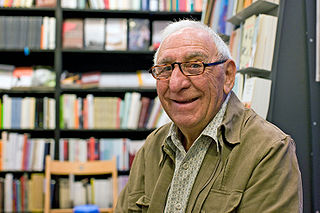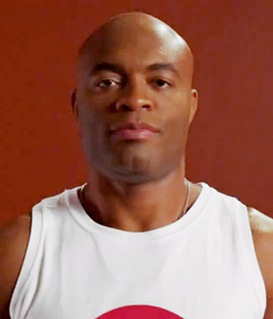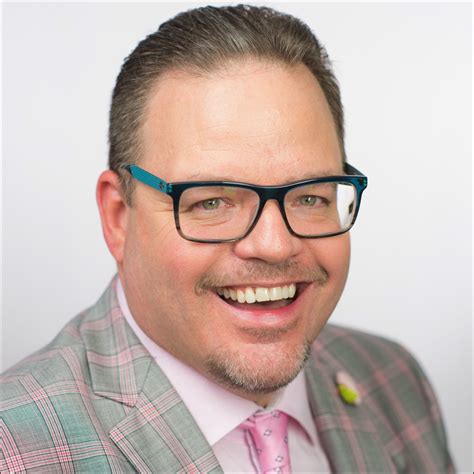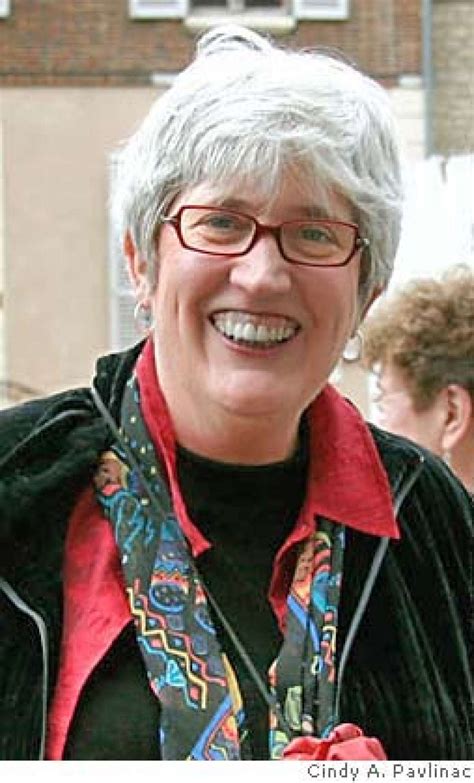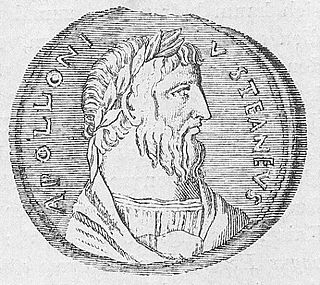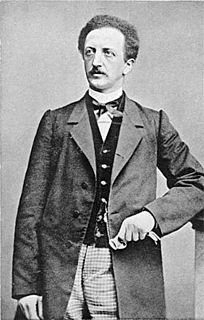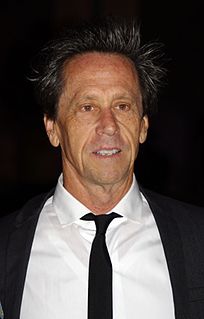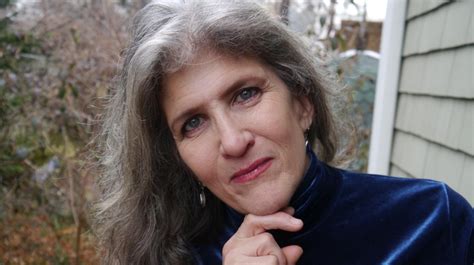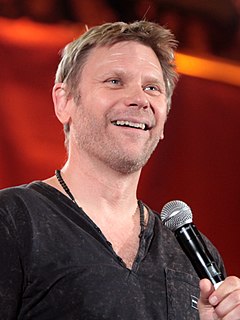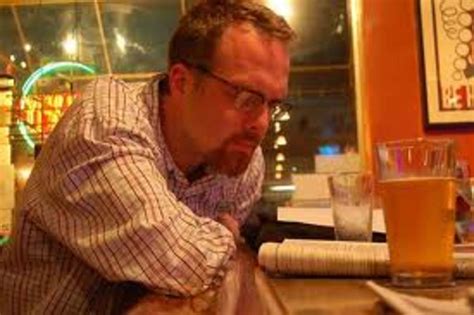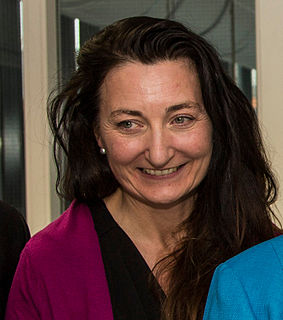Top 1200 Answering Questions Quotes & Sayings - Page 3
Explore popular Answering Questions quotes.
Last updated on April 19, 2025.
The cool thing about Watchmen is it has this really complicated question that it asks, which is: who polices the police or who governs the government? Who does God pray to? Those are pretty deep questions but also pretty fun questions. Kind of exciting. It tries to subvert the superhero genre by giving you these big questions, moral questions. Why do you think you're on a fun ride? Suddenly you're like how am I supposed to feel about that?
The biggest questions that always have perplexed me are "Where do I come from?" and "Where am I going?" The "Where do I come from?" question, which I think I largely am answering now, is about what quantum physics teaches us. If you try to find your source, you are not going to find it in a tiny little particle that began with your parents commingling.
I’m not too keen on talking. I always have the feeling that the words are getting away from me, escaping and scattering. It’s not to do with vocabulary or meanings, because I know quite a lot of words, but when I come out with them they get confused and scattered. That’s why I avoid stories and speeches and just stick to answering the questions I’m asked. All the extra words, the overflow, I keep to myself, the words that I silently multiply to get close to the truth.
Questions are not happenstance thoughts nor are questions common problems of today which one picks up from hearsay and booklearning and decks out with a gesture of profundity questions grow out of confrontation with the subject matter and the subject matter is there only where eyes are, it is in this manner that questions will be posed and all the more considering that questions that have today fallen out of fashion in the great industry of problems. One stands up for nothing more than the normal running of the industry. Philosophy interprets its corruption as the resurrection of metaphysics.
A parent who from his own childhood experience is convinced of the value of fairy tales will have no difficulty in answering his child's questions; but an adult who thinks these tales are only a bunch of lies had better not try telling them; he won't be able to related them in a way which would enrich the child's life.
Quite early on, and certainly since I started writing, I found that philosophical questions occupied me more than any other kind. I hadn't really thought of them as being philosophical questions, but one rapidly comes to an understanding that philosophy's only really about two questions: 'What is true?' and 'What is good?'
It would seem to me... an offense against nature, for us to come on the same scene endowed as we are with the curiosity, filled to overbrimming as we are with questions, and naturally talented as we are for the asking of clear questions, and then for us to do nothing about, or worse, to try to suppress the questions.
The great philosophers of the 17th and 18th centuries did not think that epistemological questions floated free of questions about how the mind works. Those philosophers took a stand on all sorts of questions which nowadays we would classify as questions of psychology, and their views about psychological questions shaped their views about epistemology, as well they should have.
Six months of looking for a job had made me an expert at picking out the people who, like me, were hurrying up to wait - in somebody's outer anything for a chance to make it through their inner doors to prove that you could type two words a minute, or not drool on your blouse while answering difficult questions about your middle initial and date of birth.
What has praise and fame to do with poetry? Was not writing poetry a secret transaction, a voice answering a voice? So that all this chatter and praise, and blame and meeting people who admired one and meeting people who did not admire one was as ill suited as could be to the thing itself- a voice answering a voice.
Plato used the dialogue format because the exchange of views, the posing and answering of questions, showed that understanding is a living, dynamic process. He distrusted writing because the settled character of the written word makes it look as if truth can be fixed and made to stand still. It is worth remembering that this greatest advocate of the objective reality of truth also believed that our access to that truth was sustained in reasoned discussion.
If you don't put the spiritual and religious dimension into our political conversation, you won't be asking the really big and important question. If you don't bring in values and religion, you'll be asking superficial questions. What is life all about? What is our relationship to God? These are the important questions. What is our obligation to one another and community? If we don't ask those questions, the residual questions that we're asking aren't as interesting.
Indeed, the only truly serious questions are ones that even a child can formulate. Only the most naive of questions are truly serious. They are the questions with no answers. A question with no answer is a barrier that cannot be breached. In other words, it is questions with no answers that set the limit of human possibilities, describe the boundaries of human existence.
Yanagihara's most impressive trick is the way she glides from scenes filled with those terrifying hyenas to moments of epiphany. 'Wasn't it a miracle to have survived the unsurvivable? Wasn't friendship its own miracle, the finding of another person who made the entire lonely world seem somehow less lonely? Wasn't this house, this beauty, this comfort, this life a miracle?' A Little Life devotes itself to answering those questions, and is, in its own dark way, a miracle.
I don't think he would have had any trouble answering Justice Sonia Sotomayor's excellent challenge in a case involving GPS surveillance. She said we need an alternative to this whole way of thinking about the privacy now which says that when you give data to a third party, you have no expectations of privacy. And [Louis] Brandeis would have said nonsense, of course you have expectations of privacy because it's intellectual privacy that has to be protected. That's my attempt to channel him on some of those privacy questions.
I gravitate toward the larger worldview questions such as, Why are we here? What are we supposed to be doing? What does it mean to know another person? To love someone? Of course, those questions are sort of in the background as I'm playing with language in the foreground, but those are the informing questions.
There is, therefore, no difficulty in answering such questions as these. What cause was there why the Universe was placed in such a part of Space? and, Why was the Universe created at such a Time? for, if there be no Space beyond the Universe, it was impossible that it should be created in another place; and if there was no Time before, it was impossible it should be created at another time.
Curiosity is a key building block. The more curious you are, the more creativity you will unleash. A great way to do that is to ask the three "magic questions" again and again... those questions are simply, "Why", "What if?", and "Why not?". Asking these questions constantly focused you on the possibilities and away from how things are at the moment.
Getting 'Millionaire' right was as hard as writing 'Dirty Pretty Things.' Harder. In the pilots, contestants kept wanting to take the money; we had to find ways - the lifelines - of keeping them in the seat, answering the questions. But there is so much snobbery about popular culture. A game show just isn't valued as much as a novel.
I was vegetarian, trying to eat from fast-food restaurants without meat. I didn't know how to eat properly and I was starving. I was adrenalized to the eyeballs from performing. I was afraid that I was sick with AIDS. We were playing five shows a week. I even went through a period of abstinence where I didn't drink and stopped having sex. Which is crazy. Maybe I'm answering too many questions at once here, but this is where my mind was at the age of 25.
have a much harder time writing stories than novels. I need the expansiveness of a novel and the propulsive energy it provides. When I think about scene - and when I teach scene writing - I'm thinking about questions. What questions are raised by a scene? What questions are answered? What questions persist from scene to scene to scene?
I did answer all of the questions put to me today, ... Nothing in my testimony in any way contradicted the strong denials that the president has made to these allegations, and since I have been asked to return and answer some additional questions, I think that it's best that I not answer any questions out here and reserve that to the grand jury.







